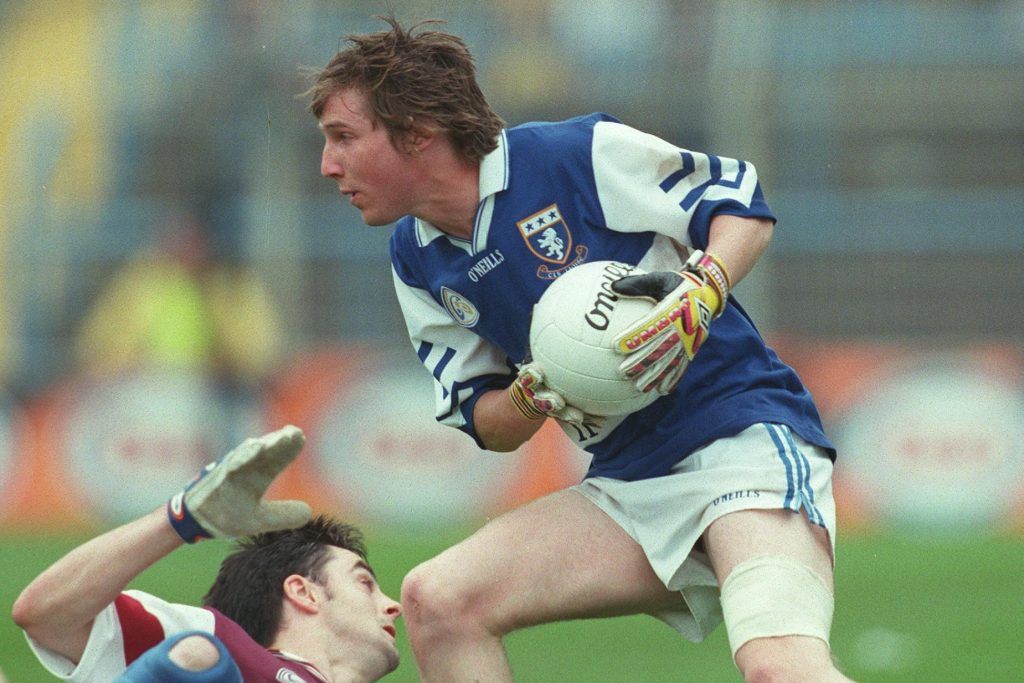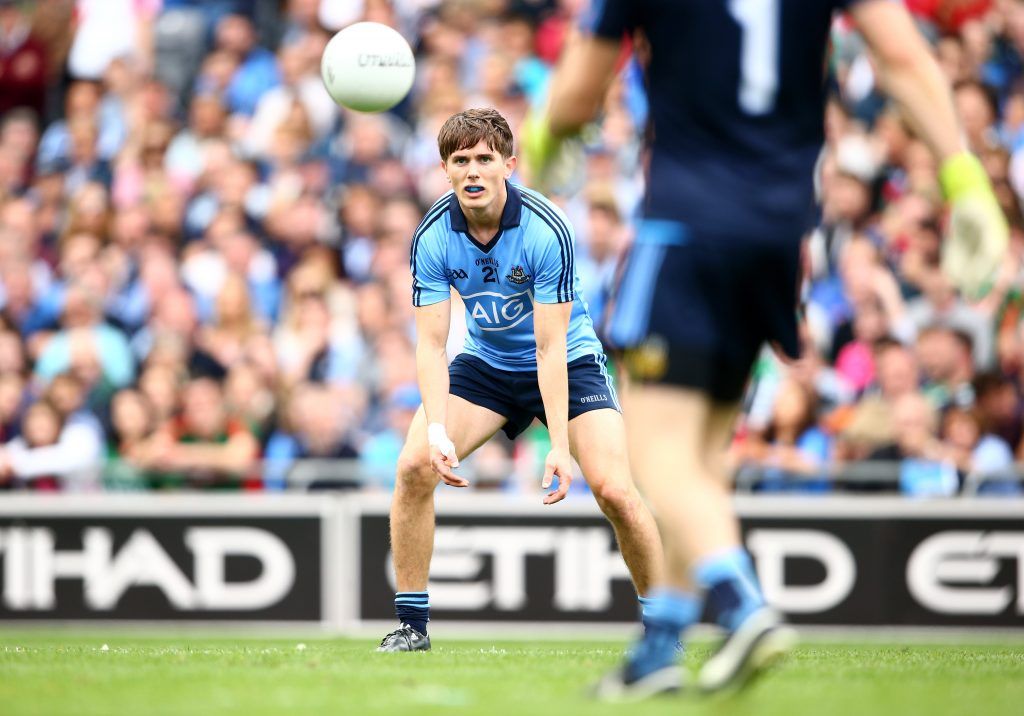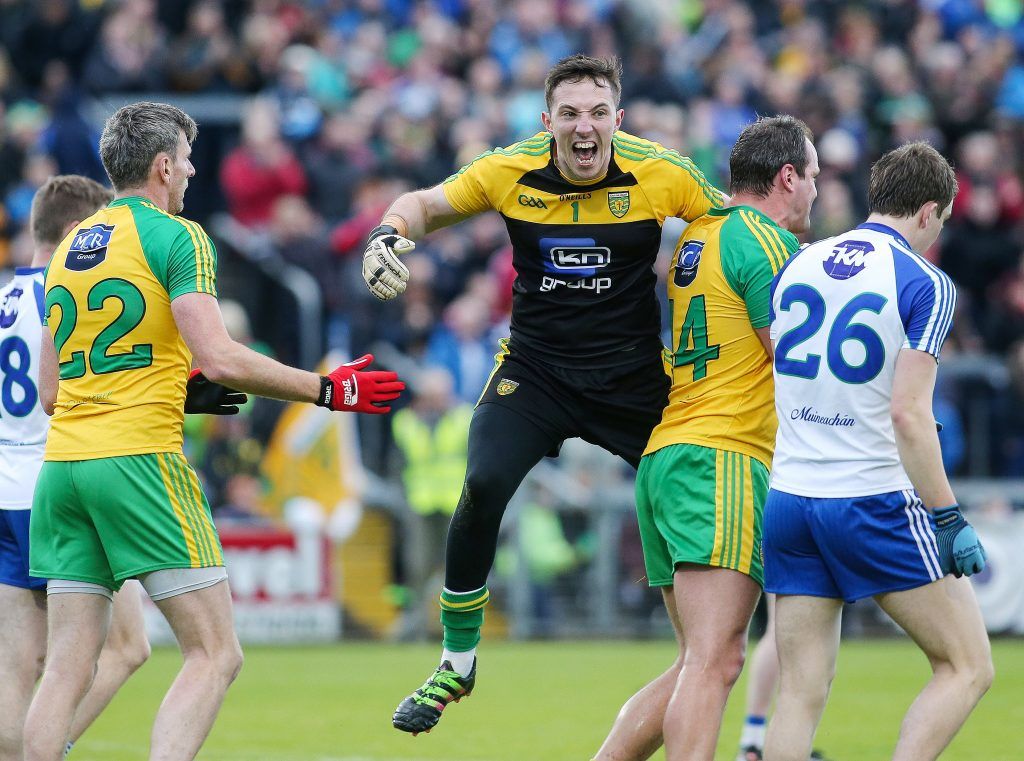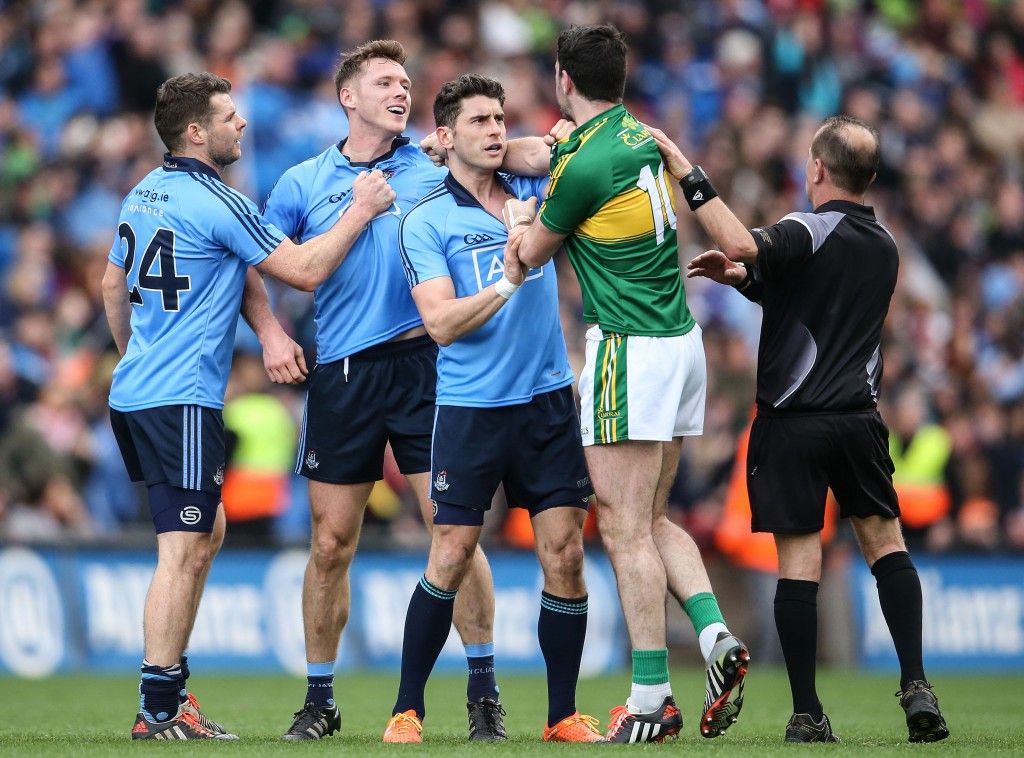

Share
5th July 2016
06:34pm BST

To emphasise it, he brought the players into a huddle - the second last of the endless huddles teams have on match day - and began to hit us in the chest. Or every second one of us. I couldn’t hear what he was saying because I was too busy trying to work out if I’d be one of the players getting a slap.
There was no way I could buy into what he was saying, even after I’d realised I wouldn’t be one of those receiving a message of intensity accompanied by a dig.
I didn’t want a punch in the chest and I didn’t need one. It was a Leinster final and I was already fired up. I had been all week. Intensity is a given on the day of a Leinster final, you don’t need a punch in the chest to bring it out, but there are ways of taking it away from players.

On The Sunday Game the weekend before last, the pundits bemoaned the absence of intensity in the Kildare-Westmeath game but I don’t criticise players for that.
Intensity doesn’t come primarily from some whooping and hollering in the dressing-room, but instead it is a by-product of systems and tactics. The word ‘intensity’ is being used far too often as analysis by bluffer pundits.
Intensity comes to you naturally in a big game, but it can be taken away by a team's overly negative approach.
How can a game have intensity when managers’ instructions include conceding kickouts and retreating into your own half of the field? It’s simple maths - concession and retreat do not equal intensity.
Conceding kickouts has been a real blight on the game. We don’t see it very often anymore; instead, teams try to get easy scores by pressurising opposition kickouts and winning the ball high up the field. However, the tactic reared its ugly head during the game at Croke Park last Sunday week.

On the field, things are changing in Gaelic football. For the first time since Jim McGuinness took the GAA world by storm in 2011 there is evidence to suggest teams are moving away from the ultra-defensive tactics we’ve seen many counties adopt in the past five years.
To be fair McGuinness is largely responsible for the positive shift too. His decision to push up on Dublin’s kickouts in the 2014 All-Ireland semi-final has copycat managers all over the country doing likewise.
It has transformed the game back to a 15 on 15 contest, at least for a while.
That’s why it was disappointing that the best the new Kildare manager, Cian O’Neill, a young coach trying to make his name in the game, could come up with against Westmeath was to go with outdated copycat tactics used by McGuinness four years ago.
https://twitter.com/SportsJOE_GAA/status/748831798629634048Westmeath were even more confusing. Last season they blazed a trail through Leinster with attacking football, scoring 3-14 against Louth, 1-21 against Wexford and 3-19 against Meath.
Understandably they played defensively against Dublin in the Leinster final. They scored six points. Using similar defensive tactics they scored seven points against Fermanagh in the next round and lost.
This year, sticking with defensive tactics, they have scored 0-13 and 1-12 while scraping over Offaly and Kildare in two forgettable games.
I’m all for using defensive tactics against superior opposition but when teams of equal ability do it, it’s simply baffling.
The problem within the GAA is copycat management. Every year teams are trying to copy other teams without thinking if the things they are copying suit the players they have in their panel.
It’s human nature, but it doesn’t get you very far. When Armagh won the All-Ireland in 2002, it came out that they’d listened to the ‘Inch by Inch’ speech from Any Given Sunday on the way to their triumph. That was enough. The following summer, it was decided that the speech was what we needed in Laois. We listened to it a few times before the lads got bored. It had no meaning for us.

Change will always come from the innovators not the copycats. The Ulster championship semi-finals have saved the season so far. Donegal and Monaghan was a classic on Saturday night. Donegal were as positive as I’ve seen them play in years, especially against a defensive team like Monaghan. These games are usually cagey affairs but Donegal scored 10 points in the first half alone.
How did they do it? By pushing up on kickouts and committing bodies forward. The angles of their support runs and the pace injected by the likes of Martin O’Reilly, Rory Kavanagh, Frank McGlynn and Ryan McHugh had Monaghan players’ heads spinning.
Monaghan played conservatively in the first half, using two sweepers who never abandoned their defensive posts. It cost them. They offered nothing going forward, registering two points in the first half.
Malachy O’Rourke changed things for the second half, taking off sweeper Drew Wylie and bringing on Neil McAdam and pushing him forward. Monaghan were a different team in the second half – lesson learned – two defensive sweepers don’t work anymore.
Anyway Drew Wylie is a man marker, not a sweeper. Man markers, obviously, learn to stick to their man while sweepers need to mark space and read the game. You can’t turn a man marker into a sweeper.
Other than the entertaining Ulster semi-finals, the Championship has been, predictably, forgettable. Supporters and media are just waiting around until August when we’ll see Mayo, Dublin, Donegal and Kerry mix it up.

Wouldn’t it be great if we saw them play each other earlier in the championship? Will we ever see a change to the structures?
Earlier this year an unimaginative, wishy washy proposal to revamp the championship made it to Congress but didn’t get through. Before the vote, director general of the GAA, Pauric Duffy, in his annual report, said this.
"But if we decide not to change the structures, then let us accept the current structures as the best that are available to us, accept what has been agreed, and accept, too, that it is time to stop talking about structures and to deal with what is and not with what ought to be or might have been."
Isn’t that depressing?
The GAA takes advantage of the passion Irish people have for their games. The current structures give us mismatches for most of the championship yet we still turn up to watch.
Last year almost 10,000 supporters came out on a freezing Sunday, on January 4th, for a McKenna Cup first round game between Armagh and Tyrone. There is an insatiable appetite for our national games in this country and the GAA, arrogantly, use this to their advantage.
Another depressing thought - How will any new restructure pass the required two-thirds majority vote at congress when the wrong people are voting for it? County board delegates and officials are interested in running their county board business, very often the playing side doesn’t concern them.
https://twitter.com/SportsJOEdotie/status/737678526237802496I’ll give you an example: In 2013 Leinster council delegates from Laois proposed a motion to move Dublin out of Croke Park for the earlier rounds for the Leinster championship.
The motion went to a vote but not one Leinster county backed the proposal. Think about that for a minute. Leinster county teams are routinely hammered in Croke Park by Dublin but their own county board delegates voted against moving the Dubs out of headquarters where their own team would have a fighting chance.
Why? The increased revenue generated in Croke Park filters down to county boards.
When Laois asked to have a home venue against Dublin this season it went to a Leinster council delegates vote again. This time 22 of the 28 delegates voted in favour of the game being played in Nowlan Park.
Why? The increased revenue generated in Nowlan Park filters down to county boards.
Laois county board voiced their disappointment publicly at the decision to play the game in Nowlan Park and received a very public reminder of the handouts the Leinster council provided them.
How can county board delegates at congress be trusted to vote on Championship restructures when they have a vested interest and require assistance from their provincial councils?
Most structures, including mine, want the provincial championships separated from the All Ireland series, an idea the provincial councils would strongly oppose.
The Gaelic Players' Association has a huge responsibility here. Unlike county board delegates, their concern is the players. Giving players more quality games during the summer months, and shortening the intercounty season to make room for club, Sigerson Cup, Under-21 and minor, should be their number one priority. Through their membership they can force change. A restructure will not pass Congress without them flexing their muscles. The talking is over.
On the field Gaelic football is turning a corner; we just need the prehistoric structures to catch up. The ball is firmly in the GPA’s court. Hopefully soon we’ll have the intensity in a season that most GAA fans crave. And I think we can get it without punching anyone in the chest during a pre-match huddle.